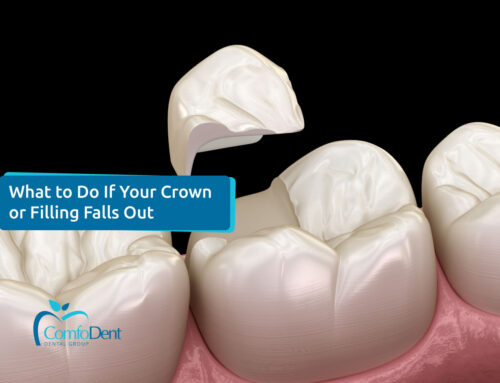Dental implants are one of the most durable and reliable solutions for replacing missing teeth. They provide a long-term option that mimics the function and appearance of natural teeth. However, like any dental treatment, their longevity depends on several factors. In this article, we will explore the lifespan of dental implants and what patients can expect over time.
How Long Do Dental Implants Last?
Dental implants are designed to be a permanent solution for tooth replacement, and under ideal conditions, they can last a lifetime. However, their longevity can vary based on a number of factors, including the patient’s oral hygiene, overall health, and habits such as smoking or grinding teeth.
The implant itself, which is typically made of titanium, is incredibly durable and can integrate with the jawbone in a process known as osseointegration. This creates a strong foundation for the artificial tooth, or crown, that sits atop the implant. While the titanium post can last indefinitely, the crown may need to be replaced every 10 to 15 years due to normal wear and tear.
Factors That Affect the Lifespan of Dental Implants
Several factors influence the longevity of dental implants:
- Oral Hygiene: One of the most critical factors in ensuring the longevity of dental implants is maintaining good oral hygiene. Brushing, flossing, and regular dental check-ups are essential to prevent plaque buildup and gum disease, which can affect the health of the surrounding bone and tissues.
- Bone Health: The success of a dental implant largely depends on the health of the jawbone. Patients with insufficient bone density may require bone grafts before receiving implants, and the long-term health of the bone is crucial for the stability of the implant. Bone loss over time can lead to implant failure.
- Diet and Habits: A balanced diet and avoiding harmful habits like smoking are important. Smoking can impair the healing process after implant surgery and increase the risk of implant failure. Additionally, habits like grinding or clenching teeth (bruxism) can put excessive pressure on the implant and cause damage.
- General Health Conditions: Certain medical conditions, such as diabetes or autoimmune diseases, can affect the healing process and the overall success of dental implants. It’s important for patients to discuss their medical history with their dentist before considering implants.
- Quality of the Implant Procedure: The skill and experience of the dental professional performing the procedure also play a role in the longevity of dental implants. Choosing a qualified and experienced dentist or oral surgeon is essential for long-term success.

What Happens Over Time?
Although dental implants are designed to be a permanent solution, they do require proper care and maintenance over the years. Here’s what you can expect over time with dental implants:
- Initial Healing Period: After the implant is placed, there is a healing period during which osseointegration occurs. This process can take several months, but it is critical to the long-term success of the implant. During this time, patients should follow their dentist’s instructions to ensure proper healing.
- The First Few Years: In the first few years, dental implants function very much like natural teeth. The titanium post integrates with the jawbone, providing a strong foundation for the crown. Patients should visit their dentist regularly to monitor the health of the implant and the surrounding tissues.
- Long-Term Maintenance: As the years go by, the crown on top of the implant may experience normal wear and tear, just like a natural tooth. The crown may need to be replaced every 10 to 15 years, depending on the patient’s bite force and oral habits. The implant post, however, is expected to last much longer, often for the patient’s lifetime.
- Potential Complications: While dental implants have a high success rate (over 95%), complications can still arise. Some patients may experience peri-implantitis, a condition similar to gum disease, which affects the tissues around the implant. Regular dental checkups are crucial to catch any potential issues early and prevent implant failure.
How to Extend the Lifespan of Your Dental Implants
To maximize the lifespan of dental implants, patients should follow these key guidelines:
- Maintain Excellent Oral Hygiene: Brush twice a day with a soft-bristled toothbrush, and don’t forget to floss around the implant. Using an antibacterial mouthwash can also help prevent infections.
- Visit Your Dentist Regularly: Regular dental check-ups and cleanings are essential for monitoring the health of your implants. Your dentist can catch any issues early and provide professional cleanings to keep your gums and implants in top shape.
- Avoid Smoking: Smoking can hinder the healing process after implant surgery and increase the risk of complications. It’s best to quit smoking to protect your dental health and overall well-being.
- Wear a Night Guard If Necessary: If you grind or clench your teeth, wearing a night guard can protect your implants from excessive pressure, preventing damage to both the crown and the implant post.
- Maintain a Healthy Diet: A nutritious diet supports overall oral health. Avoid sugary or acidic foods that can contribute to gum disease and choose foods rich in calcium and vitamin D to maintain strong bones.

The Future of Dental Implants
Advancements in dental technology continue to improve the success rates and longevity of dental implants. Innovations such as computer-guided implant placement and better materials for crowns have made implants an even more reliable option for tooth replacement.
For patients considering dental implants, it’s comforting to know that this treatment is one of the most predictable and long-lasting solutions available today. With proper care and maintenance, dental implants can provide decades of functionality and aesthetics, improving the quality of life for those who need them.
Conclusion
Dental implants offer a long-lasting solution for missing teeth, often lasting a lifetime when properly cared for. By maintaining excellent oral hygiene, visiting your dentist regularly, and following good habits, patients can ensure that their implants serve them well for many years. Understanding the factors that influence the lifespan of dental implants will help patients make informed decisions and enjoy the full benefits of this remarkable dental technology.
For more personalized advice or to learn if dental implants are the right option for you, schedule a consultation with Comfodent Dental Group today. Our team is dedicated to providing top-quality care and helping you achieve a healthy, beautiful smile that lasts a lifetime.






